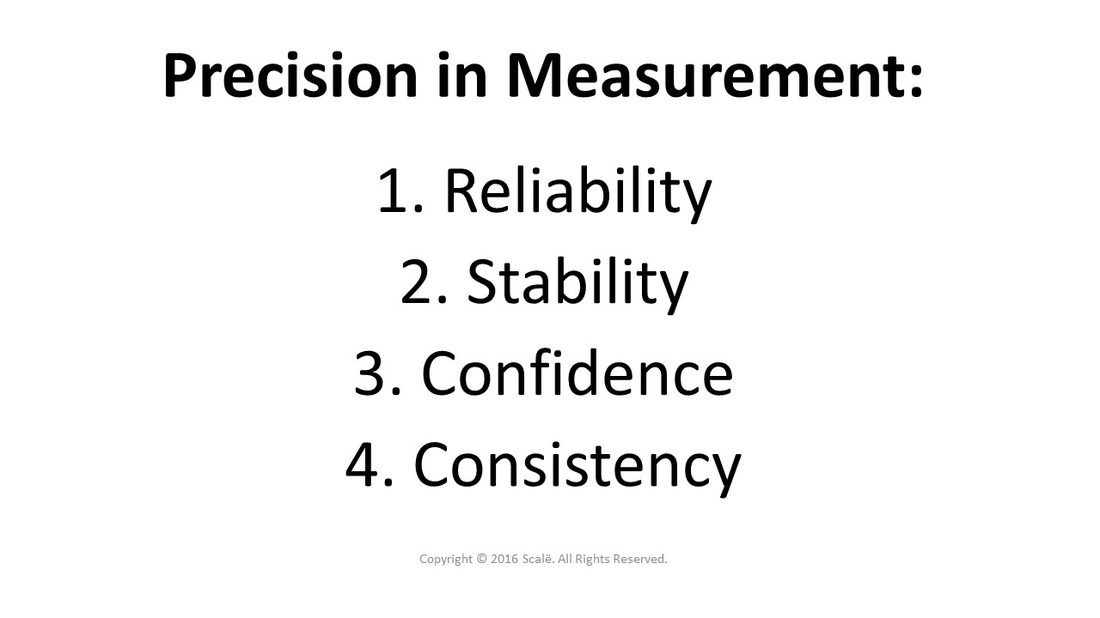Precision in measurement
Precision in measurement means the reliability, consistency, and confidence of treatment effects
Precision in measurement relates to the confidence and consistency of given values, associations, and outcomes. Precision is oftentimes presented in the form of a 95% confidence of a mean or 95% confidence interval of an unadjusted or adjusted odds ratio. Narrower confidence intervals are associated with increased levels of precision since the "true score" falls within a relatively narrow spectrum of values. Wider confidence intervals show less confidence in where the true effect may lie along a wide spectrum.
Reliability, a concept from psychometrics, is also associated with the precision of measurement. If a test were given to someone 100 times, psychometricians hypothesize that the "true score" falls somewhere within a 95% confidence interval around the "observed score" that is derived from the standard error of measurement (SEM).
The most synonymous words with precision in measurement are reliability, confidence, and consistency.
Reliability, a concept from psychometrics, is also associated with the precision of measurement. If a test were given to someone 100 times, psychometricians hypothesize that the "true score" falls somewhere within a 95% confidence interval around the "observed score" that is derived from the standard error of measurement (SEM).
The most synonymous words with precision in measurement are reliability, confidence, and consistency.
Click on the Accuracy in Measurement button below to continue.
Hire A Statistician
DO YOU NEED TO HIRE A STATISTICIAN?
Eric Heidel, Ph.D., PStat will provide you with statistical consultation services for your research project at $100/hour. Secure checkout is available with Stripe, Venmo, Zelle, or PayPal.
- Statistical Analysis on any kind of project
- Dissertation and Thesis Projects
- DNP Capstone Projects
- Clinical Trials
- Analysis of Survey Data

